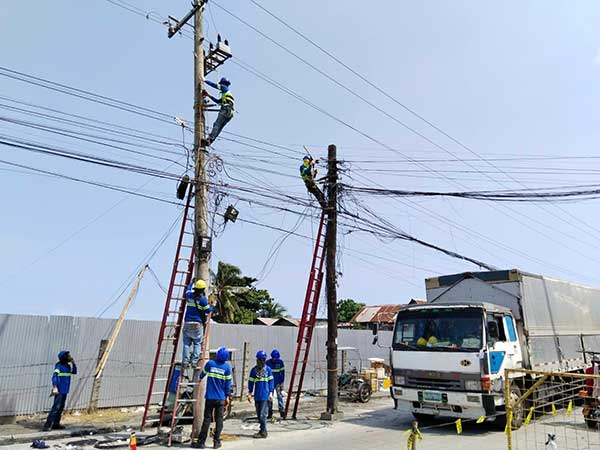
By Rjay Zuriaga Castor
The Central Negros Electric Cooperative, Inc. (CENECO) has gradually recovered from significant debts and system losses through its joint venture agreement (JVA) with Primelectric Holdings Inc./Negros Electric Power Corp. (NEPC).
CENECO General Manager Atty. Arnel Lapore said the cooperative had been grappling with substantial external and internal loan debts before he took the helm in January 2023.
“There is a peculiarity in the problems of each cooperative. For us in CENECO, it was hefty debts coupled with a large system loss,” Lapore said on Daily Guardian on Air via Aksyon Radyo-Iloilo last Friday.
“CENECO was already exposed to significant debts, both from creditor banks and internal borrowings,” he added.
According to Lapore, the financial difficulties were so severe that relying solely on profits to manage and pay off these debts was nearly impossible.
As the cooperative continues its transition under the JVA, Lapore expressed optimism about CENECO’s ability to fulfill its financial obligations, emphasizing that the value of its assets exceeds its liabilities.
“If we value the assets of CENECO, we have more than enough to pay off our obligations,” he said, noting that one of the key features of the JVA is its respect for the rights of member-consumer-owners and employees.
Lapore explained that under the JVA, there will be no takeover of CENECO because the deal with NEPC is structured under a 70/30 scheme.
CENECO retains a 30 percent profit share from NEPC, while NEPC will provide 70 percent, or P1.7 billion, as payment for CENECO’s distribution assets, which are valued at P2.4 billion.
Lapore said this amount is sufficient for the cooperative to pay off debts to the National Electrification Administration (NEA) and banks, refund bill deposits to consumers, and cover separation and retirement pay for employees.
“Separation pay is ensured for our previous employees as there will be an absolute separation of employees to facilitate the transition,” he added.
Former CENECO employees reportedly received up to P6 million in benefits, particularly those holding high positions with over 30 years of service.
According to the Collective Negotiation Agreement, the benefits package is structured as follows: 100 percent for 5-10 years of service, 150 percent for 10-15 years of service, 175 percent for 15-20 years of service, and 200 percent for 20 years and above.
In addition to this, employees also received an extra 100 percent per year of service and a P100,000 financial assistance package.
Lapore also noted that in the operational shift, consumers will receive dividends, but CENECO must first be registered as a cooperative with the Cooperative Development Authority (CDA) or as a stock corporation with the Securities and Exchange Commission (SEC).
Lapore said he is leaning toward establishing CENECO as a corporation under the SEC.
“This will redound to the benefits of the consumers because we are looking at the transformation of CENECO into a corporate entity where consumers will be given a real share of stocks. It would be easier, and we can better manage it as a corporation rather than a CDA-registered entity,” he explained.
In addition to protecting employee rights, the cooperative has ensured that critical assets are retained under CENECO’s ownership.
“One of the positive aspects of this asset transfer is that we made sure CENECO retains its real property assets, and our receivables were also retained,” Lapore said.
The NEA granted conditional consent to the JVA between CENECO and NEPC in November last year, in which the joint venture company will infuse capital and financial resources to modernize and improve power distribution within CENECO’s franchise area.





















